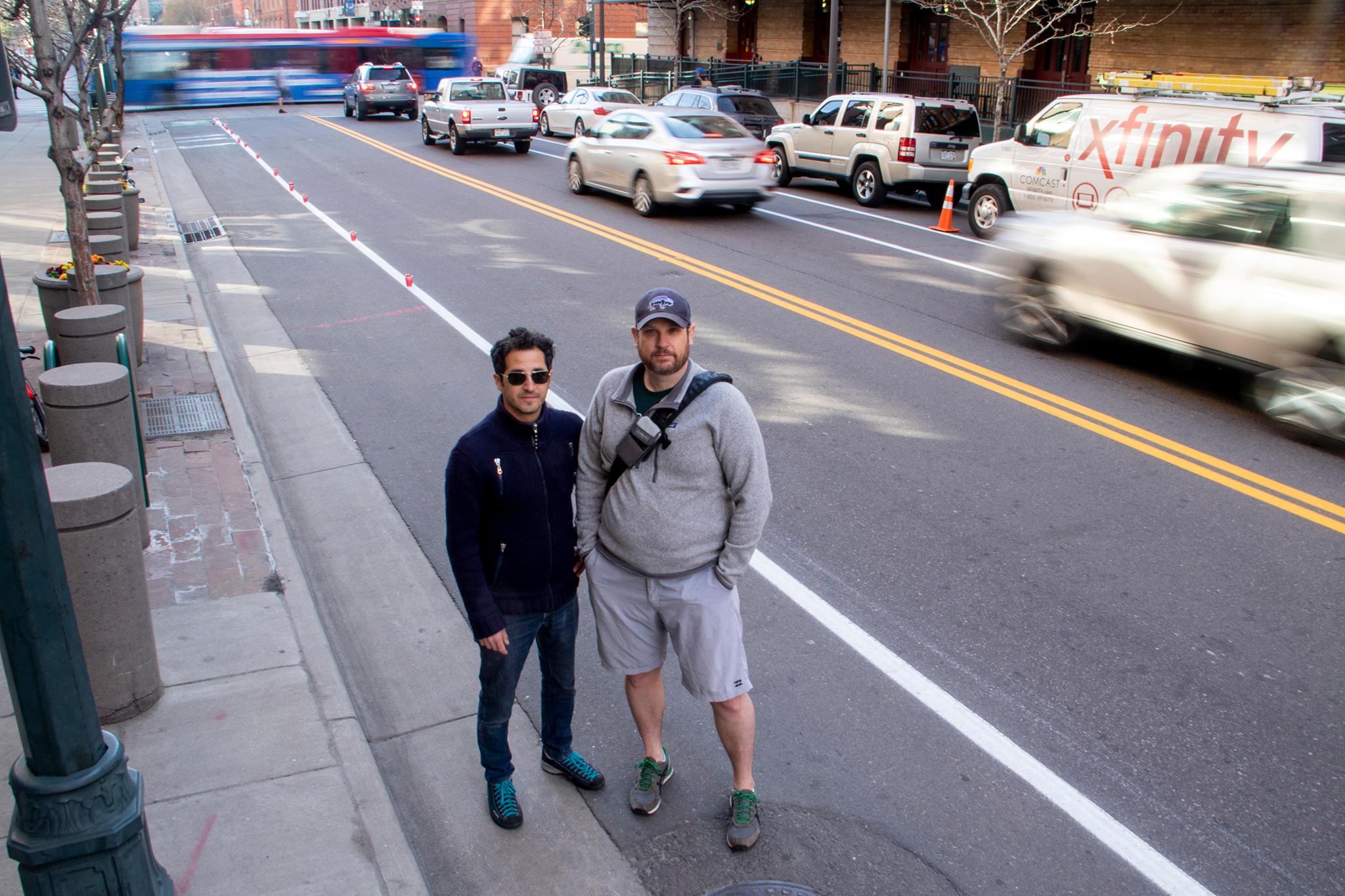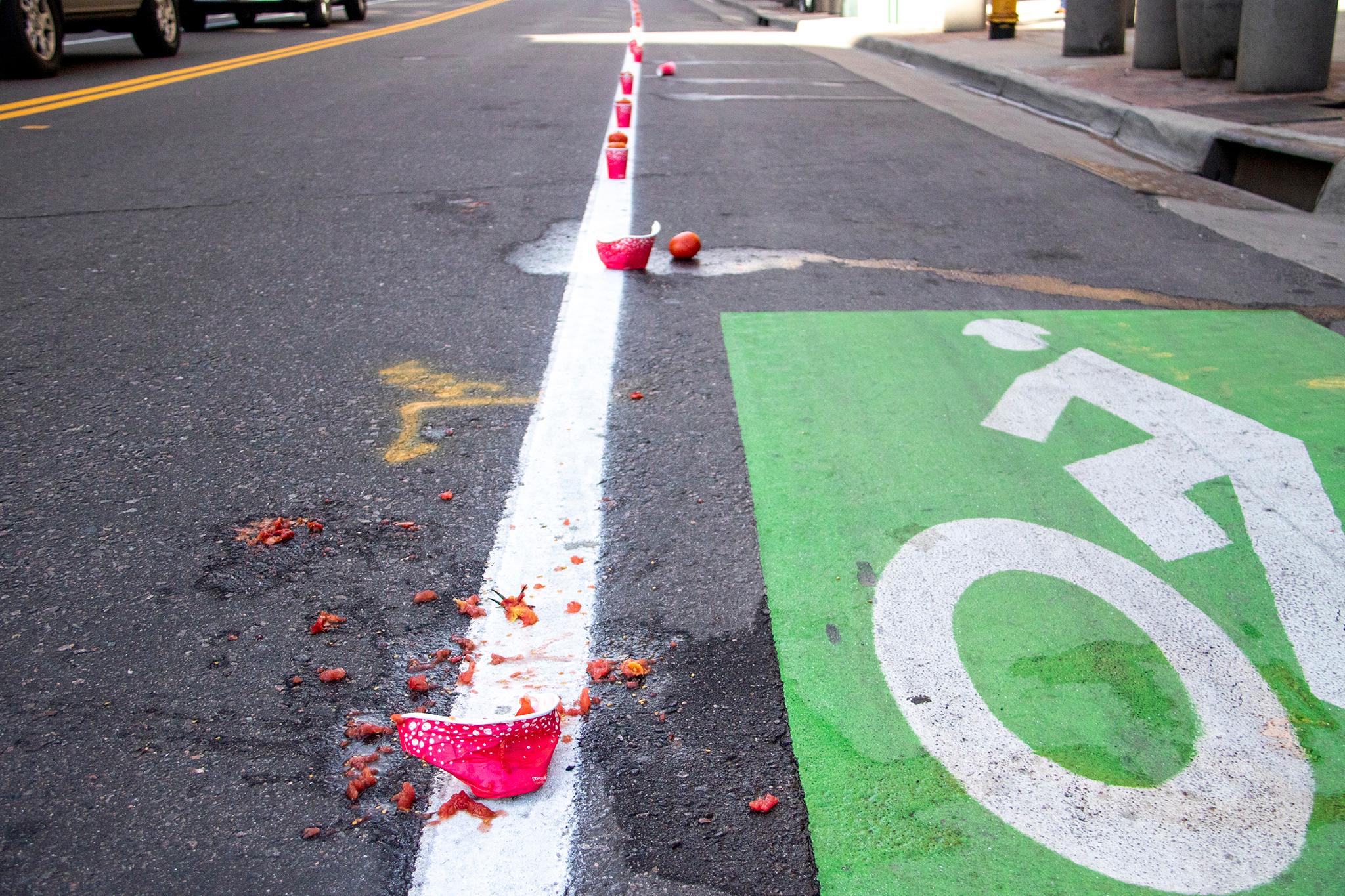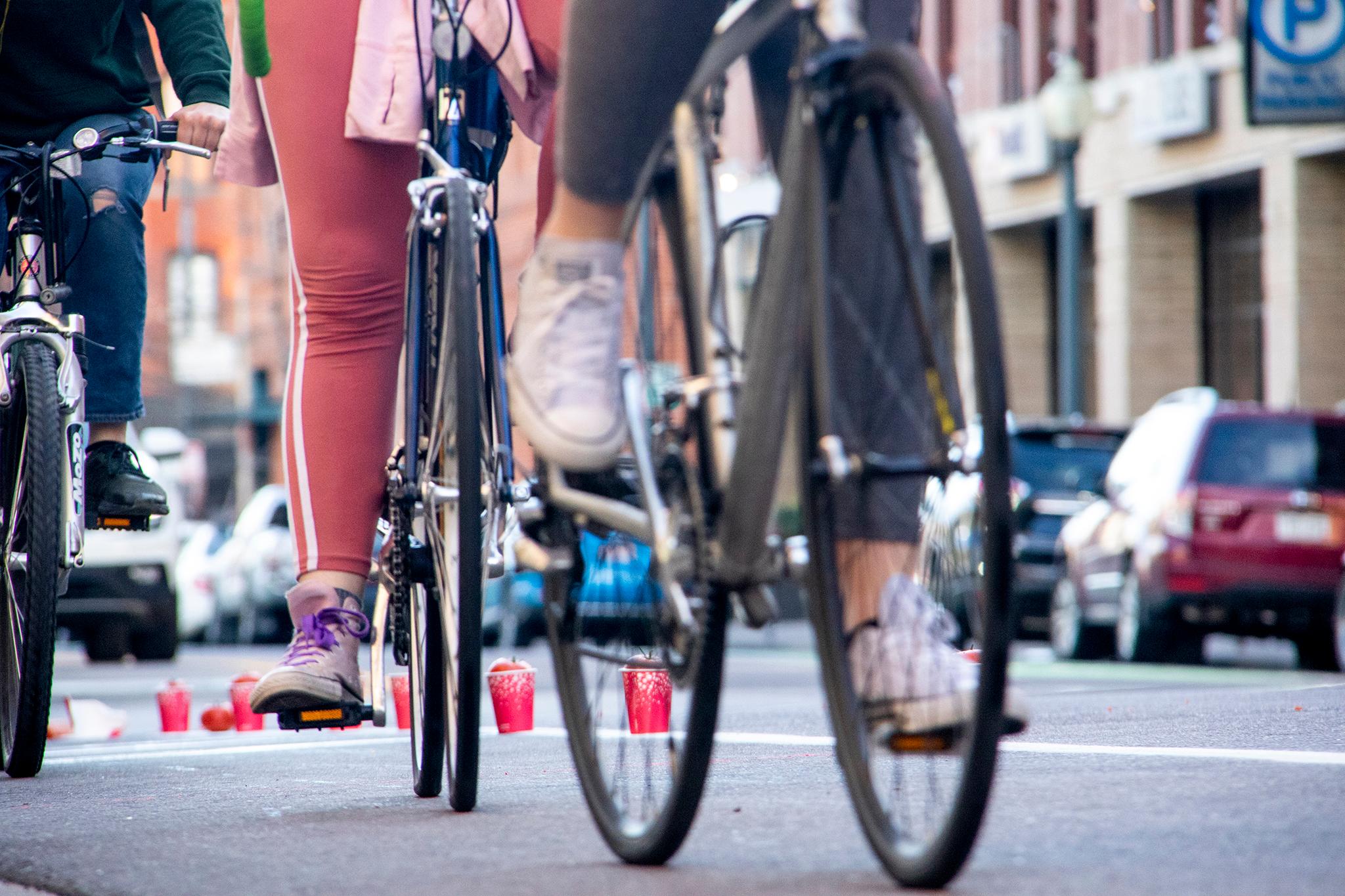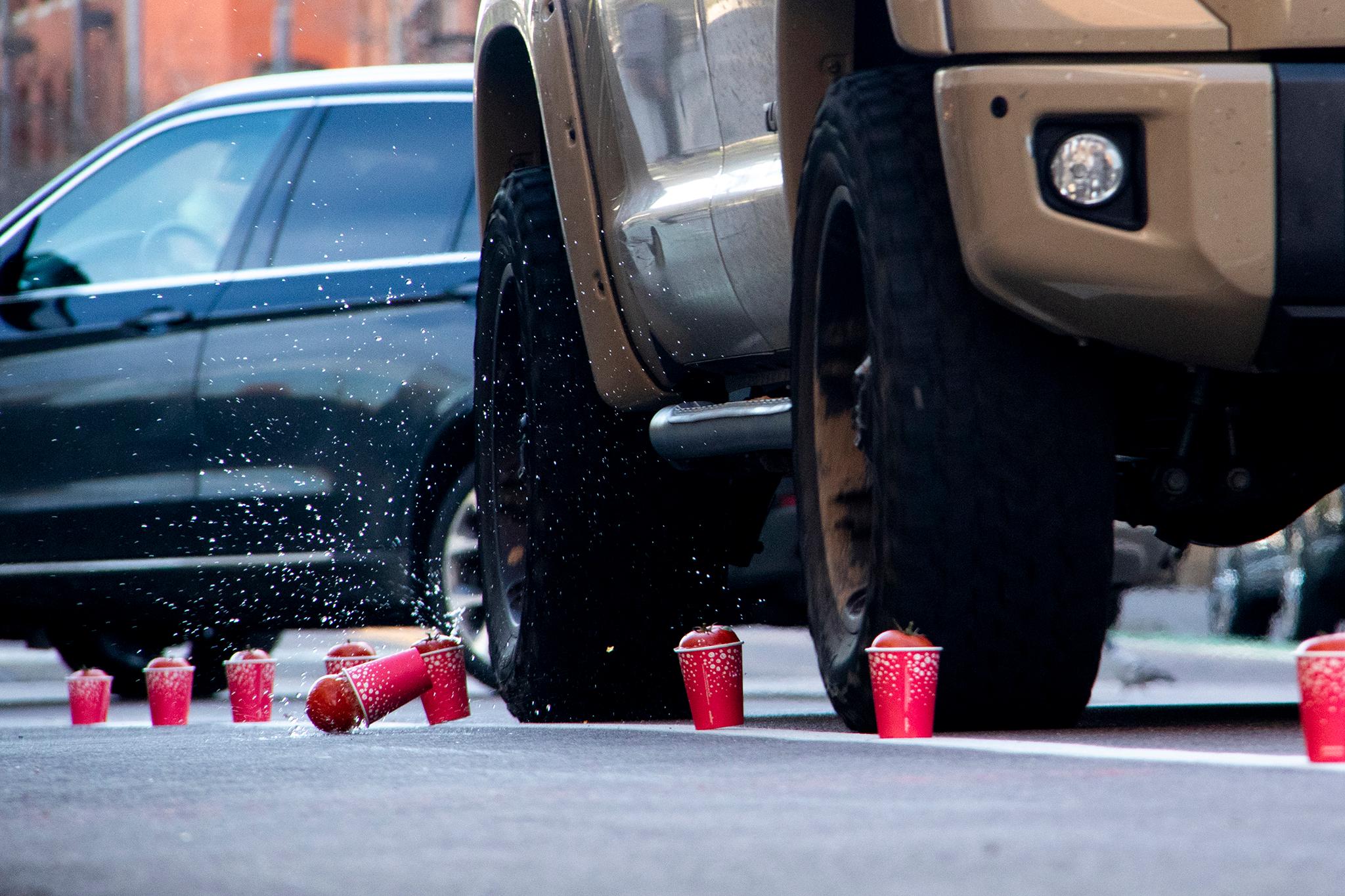If stores worldwide saw a slight uptick in sales of Solo cups and produce over the last couple of days, they can thank streets dominated by cars and the people on bikes who want to make them safer.
Denver's Jonathan Fertig organized what has become a worldwide day of action among people who want to see more, safer bike lanes that protect riders from traffic. It's called #RedCupProject, and it's modeled after a tactic favored by Dave Salovesh, a Washington, D.C., resident and bike advocate who was killed by a driver in a standard, painted bike lane one week ago.
Salovesh used to place red Solo cups along bike lanes to demonstrate how simple it is for city decision-makers to create a protected bike lane, or a bikeway that's physically buffered from traffic.
Denver's Fertig is a seasoned and unapologetic force in America's bike community, so he decided to organize. He took to Twitter, the hashtag took off, and people in more than 20 cities -- in the U.S., Canada, Australia and England -- placed rows of red stuff along bike lanes Friday. Some people incorporated tomatoes or paper cups for a more environmentally friendly protest.
"It's one thing to watch a tomato get squished or a cup of water get crushed on the ground, but it's another thing when it's flesh and bones," Fertig said Friday. He spoke standing next to the newly red-lined Wynkoop Street bike lane between 15th and 16th streets, an infamous block for the number of drivers who block it daily, forcing bicyclists suddenly into traffic.
Drivers killed six people on bikes last year in Denver, according to the Denver Police Department. No one has died while riding this year. At least seven bike lanes around Denver received the special treatment from residents across the city Friday.


Fertig and his partner in protest, bike advocate Rob Toftness, have focused on the Wynkoop stretch for a while. Delivery drivers consistently ignore the "No Parking Any Time" signs because they have nowhere else to go on that block. (Editor's note: You know Rob's name, by the way, because his previous advocacy work was for good chile.)
"We need a loading zone," said Abel (he would not share his last name), a delivery driver who parked in the bike lane during the demonstration to offload a bunch of glass plates. "If we had somewhere to park, we wouldn't block it."
Neither local activist knew Salovesh, the person killed in D.C. But his death had global impact, Toftness said, because he was apparently unrelenting.
"It's easy to get tired and quit and it sounds like he never did," Toftness said.
Fertig said, "This is someone who's mouthing off on Twitter at the city, going to public meetings, really vocal about saving lives and making the streets safer for people. So to see somebody who is really dedicated to this cause like I am and like Rob is, to see somebody like that die -- he had a child -- it just makes it that much more real."
Denver Public Works spokeswoman Heather Burke could not say if the city has immediate plans to add a loading zone to the block. But the streets department increased enforcement of drivers parking in bike lanes. The streets department also has eight "high-comfort" bike lanes in the works. Burke also said the city is also working on a long-term plan to manage curb space.

By the way, if you're wondering how to pick someone up of drop someone off at Union Station without blocking the bike lane, we can help. Denverite figured out and reported on Union Station's seemingly little-known and -used drop-off and pick-up area back in 2016.












